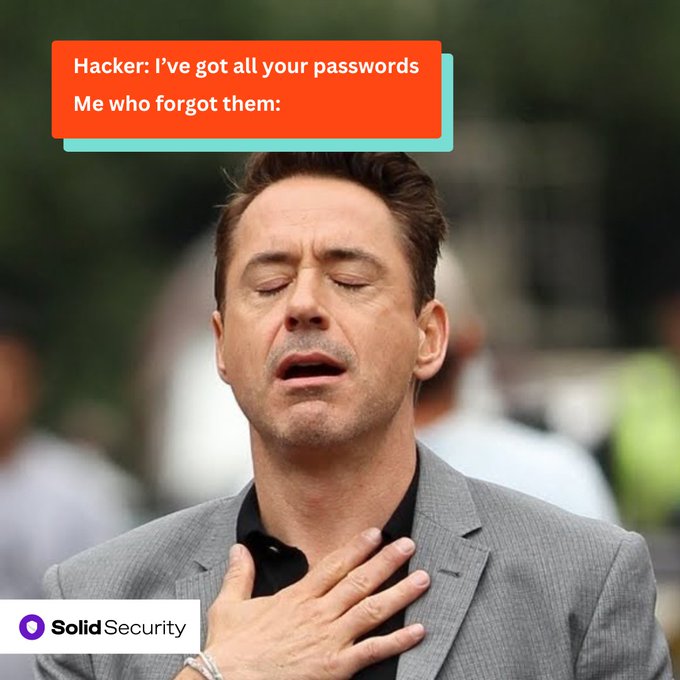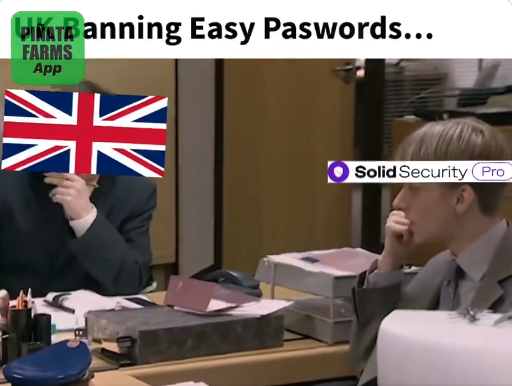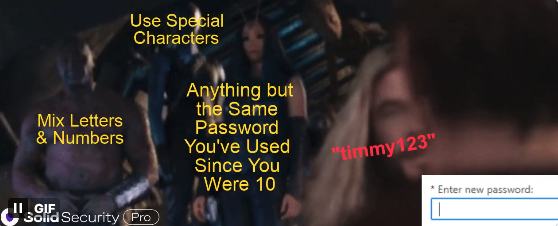We’ve talked about passwords a lot. But we can’t stress enough how important such a basic concept is in your first line of defense for your personal information, site access, and account access in all aspects of your life.
We even ran a meme contest for World Password Day. And since we couldn’t decide on only one winner, here are the top three winners. (See them all on Twitter/X here.)
Congratulations to FocusWP, Mike Demo, and Termageddon. And here are the winning memes:



Our contest wasn’t merely an exercise in fun, though. Passwords and account access is important.
People often think that they would never be the target of cyber crime, and that since “they’re nobody special,” they shouldn’t be concerned. So much so that, according to CyberNews, the most common passwords in 2024 are:
- 123456
- 123456789
- qwerty
- password
- 12345
- qwerty123
- 1q2w3e
- 12345678
- 111111
- 1234567890
As you can see from that list, security isn’t at the top of most peoples’ minds. This clip from Jimmy Kimmel Live also shows how flippant people are with sharing password information. It really does make you facepalm.
Strong passwords are the frontline defense in a digital world, safeguarding personal and sensitive information from unauthorized (and often nefarious) bad actors. They are crucial for protecting online accounts, financial data, personal communication, and even personal identities from cyber threats and hackers. The importance of strong passwords cannot be overstated in an age where cybercrime is increasingly prevalent and sophisticated.
Weak passwords, such as “123456” or “password,” are incredibly easy for hackers to guess or crack using automated tools. Once a hacker gains access to an account, they can wreak havoc by stealing sensitive information, impersonating the account holder, or even conducting fraudulent activities. Strong passwords act as a barrier, making it significantly harder for malicious actors to compromise accounts.
Moreover, strong passwords are vital for protecting against brute force attacks. These attacks involve systematically trying various combinations of characters until the correct password is discovered. With weak passwords, brute force attacks can succeed relatively quickly. However, strong passwords with a combination of uppercase and lowercase letters, numbers, and special characters exponentially increase the number of possible combinations, making them resistant to such attacks.
In addition to brute force attacks, another prevalent threat is password phishing. In phishing scams, cybercriminals use deceptive tactics, such as fake emails or websites, to trick individuals into divulging their login credentials. Strong passwords provide an extra layer of defense against phishing attempts because even if users inadvertently provide their username, hackers would still need to crack the password to gain access.
Furthermore, strong passwords are essential for maintaining the security of interconnected systems. In today’s interconnected world, a compromise in one account can potentially lead to breaches in other accounts or systems if users employ the same password across multiple platforms. Strong, unique passwords for each account mitigate the risk of widespread compromise in the event of a security breach.
Beyond individual security, strong passwords contribute to the overall cybersecurity posture of organizations. Businesses store vast amounts of sensitive data, including customer information and proprietary data. Weak passwords among employees can serve as entry points for cyber attackers looking to infiltrate corporate networks and steal valuable information. Implementing strong password policies and enforcing regular password changes are critical components of an organization’s cybersecurity strategy.
And of course, while strong passwords play a pivotal role in protecting our digital lives and sensitive information from cyber threats, passwordless access to your website is even better. And for sites and accounts where passwordless isn’t a possibility, enable two-factor authentication wherever possible.
And never share your passwords with anyone.
Sign up now — Get SolidWP updates and valuable content straight to your inbox
Sign up
Get started with confidence — risk free, guaranteed